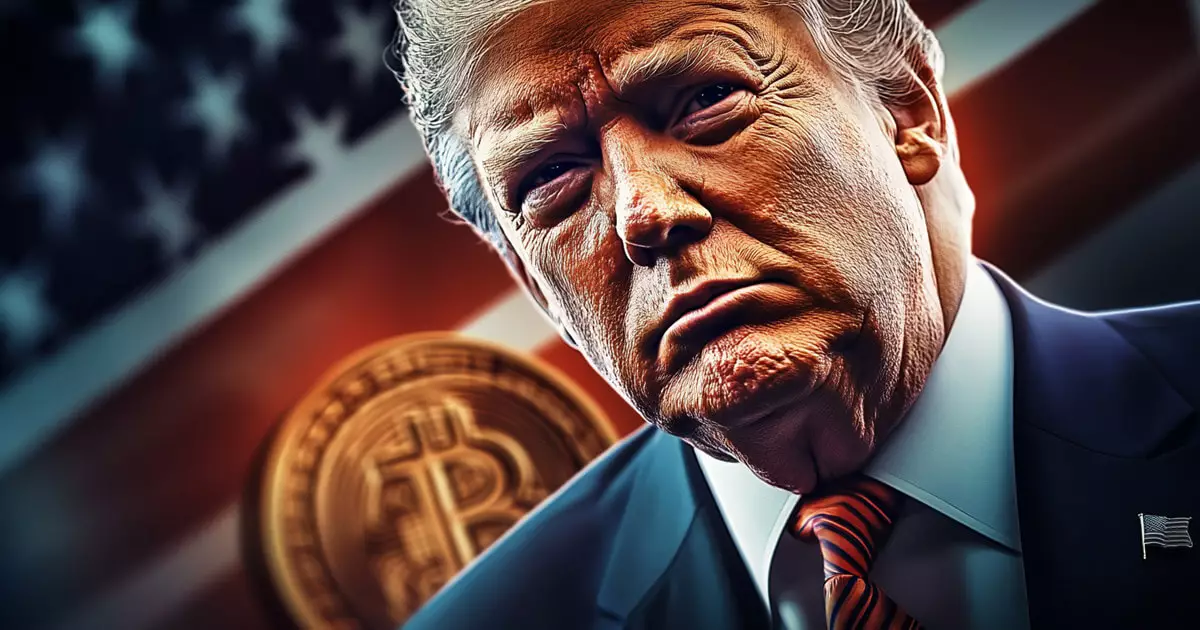In an era where financial stability hangs by a thread, the advocacy of cryptocurrencies by U.S. President Donald Trump is not just a controversial stance; it could very well be the catalyst for the next economic meltdown. Francois Villeroy de Galhau, the governor of Banque de France, voiced profound concerns recently, labeling Trump’s alignment with crypto assets as a potential “negligent sin.” This thought-provoking assertion raises the question: is the U.S. government inadvertently nurturing the seeds of a financial apocalypse?
Villeroy de Galhau’s critique requires us to scrutinize the historical implications of American financial missteps. He underscores a painful truth: the majority of severe financial crises in modern history can be traced back to flawed American policies. The Great Depression, the OPEC Oil Price Shock, and the Great Recession all emanated from U.S. soil, demonstrating a troubling pattern. By embracing cryptocurrencies—widely celebrated for their volatility and lack of regulation—the Trump administration risks further destabilizing an already precarious global economy.
The Regulatory Blind Spot
Regulation is not merely a bureaucratic dance; it is a bulwark against financial anarchy. Villeroy has consistently highlighted a significant oversight in Trump’s approach: the lack of regulation concerning non-bank financial entities and the burgeoning crypto market. The financial crises that have scarred American history were often preceded by similar lapses in oversight. To ignore the need for robust regulatory frameworks now is to invite disaster. The mantra of “too big to fail” has morphed into “too flexible to regulate,” allowing innovative yet dangerous financial instruments to flourish unchecked.
This laissez-faire approach not only endangers American citizens but has far-reaching implications for international markets. Other nations, observing the U.S. embrace of unregulated digital assets, may feel pressured to follow suit, further entrenching a precarious scenario that could spiral beyond control. Economies that traditionally relied on stable financial practices could easily find themselves infecting international finance with volatility bred from reckless behavior.
The Economic Horror Show
It’s pertinent to mention that Villeroy’s fears are echoed by other financial stalwarts, including Joachim Nagel, head of the German central bank. Nagel’s characterization of Trump’s economic policies as resembling a “horror show” captures the despair felt by many in the global economic community. Unregulated crypto trading, coupled with erratic trade conflicts initiated by the Trump administration, creates an environment ripe for turmoil.
Since Trump’s tenure began, there has been an unsettling pivot—via the SEC’s withdrawal from significant cases against crypto entities such as Coinbase. The establishment of a crypto strategic reserve, wherein the U.S. government intends to accumulate cryptocurrencies like Bitcoin and Ethereum, represents a shift towards legitimizing assets that possess an alarming degree of unpredictability. The irony is palpable: in a nation flagged for its conservative economic policies, the administration seems to advocate a radical shift into financial territory fraught with peril.
The trajectory is clear: as cryptocurrencies gain traction, the implications for financial systems already beleaguered by uncertainty become increasingly dire. Each decision made reflects a broader ideological battle over the value of regulation versus the allure of innovation. The stakes are immense. If the trajectory remains unchecked, we may soon find ourselves at the edge of a financial abyss, proving Villeroy’s prophetic warnings all too accurate.

